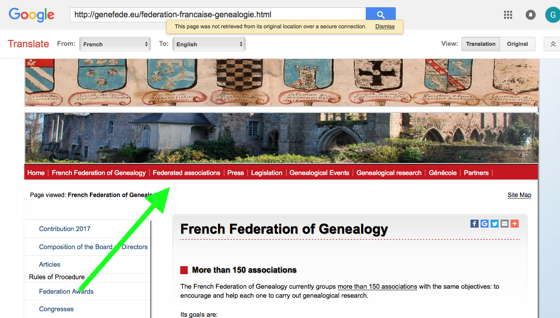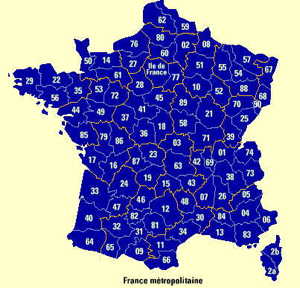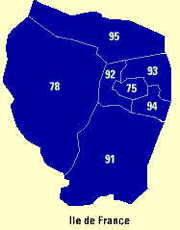You
are receiving this because your address is subscribed at: www.jaunay.com/newsletter.html |
|
 |
| No: 141 |
November 2017
|
|
News November 8: How to be a successful family historian 1 WEA Centre Adelaide 8:00-9:45pm 1st of 6 sessions) 12: Adelaide heritage walk: Swans, bridges and a stadium WEA 2:00-4:00pm 15: How to be a successful family historian 2 WEA Centre Adelaide 8:00-9:45pm 2nd of 6 sessions) 19: Scottish Heraldry - SA Genealogy & Heraldry Society 2:0-4:000pm 22: How to be a successful family historian 3 WEA Centre Adelaide 8:00-9:45pm 3rd of 6 sessions) 26: Glenelg heritage walk: Settlement to resort WEA 2:00-4:00pm 29: How to be a successful family historian 4 WEA Centre Adelaide 8:00-9:45pm 4th of 6 sessions) December 3: Semaphore heritage walk: Seashore heritage WEA 2:00-4:00pm 6: How to be a successful family historian 5 WEA Centre Adelaide 8:00-9:45pm 5th of 6 sessions) 13: How to be a successful family historian 6 WEA Centre Adelaide 8:00-9:45pm 6th of 6 sessions) See the seminar program for more details and bookings for 2017. |
In
this issue: |
|
Graham Jaunay |
| French family history research As some readers would have gathered over the years, my personal research not only focusses on Australia, Ireland and the UK but also on France. My paternal grandfather was born in France and came with his family from Reims in the Champagne region of France to Chateau Tanunda then called the Adelaide Wine Company - in the Barossa Valley of SA. As a consequence I have great interest in French research. For many years this proved quite difficult as the French were not as far advanced as the UK with producing online records. Everything up until the past few years had to be undertaken by correspondence and to say the response rate from archives was poor would have to be one of the greatest understatements in the history of mankind. In fact the only way to successfully pursue research was to turn up in person on the doorstep of an archive or engage an agent! Essentially my family initially left France as a consequence of the Revolution although when things settled down they returned. People of French ancestry can be found in many regions and apart from migration for economic reasons which is why I am in SA - there were several great exoduses from France due to internal issues. The descendants of Huguenots can be found in the Netherlands, England, Germany, Switzerland and New France now part of the USA and Canada). One of the problems with French research is that the records of interest to family historians are located in the archive (archives départementales) of the administrative town of each département comparable with an English county - and there are 95 départements in metropolitan France and five overseas départements. Each department operates independently and today some are very accessible whilst others remain difficult to access. Initially records were retained at a more local level in town halls where they are called Municipal Archives (Archives municipales). Technically these records should be sent to the archives départementales after 100 years. The hundred year rule restricts access to records to protect privacy. Personally I have never been questioned as to why I seek a record but technically the inquirer has to establish a relationship to the subject being researched. Known as the law of 3 January 1979 on Archives (la loi sur les Archives du 3 janvier 1979). In 1539 Francis I ordered the general keeping of baptismal and burial registers and marriage registers were introduced in 1579. Parius registers registres paroissiaux - are held in the archives départementales. All the registers hold far more information than any English register. In the case of baptism you can expect to find: the date, child's name, date and place of birth, father's name and occupation, mother's name and occupation and the names of the godparents. In the case of a marriage you should find the date, names of the parties, their ages, their places of birth, their occupations and places of residence, their parents' names, their status at the time of marriage and the names of the witness. Burial records should provide the deceased's name, date of burial, the date and place of death, the cause of death and the names of the witnesses. In 1792, during the French Revolution, the Legislative Assembly introduced the civil registers (registres d’état civil) - for birth, marriage and death records but the parish registers remained in use by some Churches. France was a leader in civil registration and the detailed information provided compared with other jurisdictions is great. These documents are written as prose rather than filling in a form but within the story you should find the genealogical details sought. These records are kept at the town hall (hôtel de ville) and a copy is send to the Departmental Archives after 100 years. The Decennial Tables (tables décennales) are a ten-year alphabetical index of all births, marriages and deaths recorded in the Civil Registers. These tables contain the date of registration and the names of the persons. To fill in the gaps between birth, marriage and death we have the census (recensement) that was conducted every five years from 1831 with interruptions due to WW1 and WW2. Unlike the UK one can access 20th century censuses to 1975. Having such a frequent census is a great aid in following people! To locate your French ancestors you need to know the place of residence to determine which department and/or town hall to access. If you know the town already then use postal code will indicate the appropriate département as the postal code's first two digits represent the département. Many websites can help you find the postal code of a town. I use CodesPost. Just enter the name of the town in the search form and click the Recherche button to obtain the postal code, the name of the department and the name of the region. The modern way to contact a departmental archive is online and in fact by visiting the online site you may find the records you seek are readily available. The current web addresses are listed below. Do consider joining the local family history society. Experience with these groups in helping you through sticky patches cannot be underestimated. Join the most appropriate group as any others you need to consult will usually recognise this membership. Society presidents have been known to make representations to local archivists on behalf of an overseas member facing response difficulties. Local searchers can usually be engaged through these societies. To access the appropriate society there are more than 150 of them in France - go to the Fédération Française de Généalogie website. Here you will find groups listed by region and department.  If you happen to venture into France to do your research in local repositories you can expect a greater success rate as often the local people especially in the regions outside Paris will go out of their way to help an overseas inquirer. The main barriers here include less understanding of English and hence some confusion about what you want. Also sometimes the facility may not have retained the records. There are some statuary limitations on how long local record offices retain records. This is a fairly hit and miss situation as often while they have room the record is retained. Furthermore if the record has a local significance it is often retained. Sometimes the record is deemed too fragile to photocopy. However, you will always be welcome to view the document and you may be permitted to take a photo! If you happen to venture into France to do your research in local repositories you can expect a greater success rate as often the local people especially in the regions outside Paris will go out of their way to help an overseas inquirer. The main barriers here include less understanding of English and hence some confusion about what you want. Also sometimes the facility may not have retained the records. There are some statuary limitations on how long local record offices retain records. This is a fairly hit and miss situation as often while they have room the record is retained. Furthermore if the record has a local significance it is often retained. Sometimes the record is deemed too fragile to photocopy. However, you will always be welcome to view the document and you may be permitted to take a photo! 01 - Ain: Capital: Bourg-en-Bresse. 02 - Aisne: Capital: Laon. 03 - Allier: Capital: Moulins. 04 - Alpes-de-Haute-Provence: Capital: Digne-les-Bains. 05 - Hautes-Alpes: Capital: Gap. 06 - Alpes-Maritimes: Capital: Nice. 07 - Ardèche Capital: Privas. 08 - Ardennes Capital: Charleville-Mézières. 09 - Ariège: Capital: Foix. 10 - Aube: Capital: Troyes.  11 - Aude: Capital: Carcassonne.
11 - Aude: Capital: Carcassonne. 12 - Aveyron Capital: Rodez. 13 - Bouches-du-Rhône: Capital: Marseille. 14 - Calvados: Capital: Caen. 15 - Cantal: Capital: Aurillac 16 - Charente: Capital: Angoulême 17 - Charente-Maritime: Capital: La Rochelle. 18 - Cher: Capital: Bourges. 19 - Corrèze: Capital: Tulle. 2A - Corse-du-Sud: Capital: Ajaccio. 2B - Haute-Corse: Capital: Bastia. 21 - Côte-d'Or: Capital: Dijon. 22 - Côtes-d'Armor: Capital: Saint-Brieuc. 23 - Creuse: Capital: Guéret. 24 - Dordogne: Capital: Périgueux. 25 - Doubs: Capital: Besançon. 26 - Drôme: Capital: Valence. 27 - Eure: Capital: Évreux. 28 - Eure-et-Loir: Capital: Chartres. 29 - Finistère: Capital: Quimper. 30 - Gard: Capital: Nîmes. 31 - Haute-Garonne: Capital: Toulouse.  32 - Gers:
Capital: Auch. 32 - Gers:
Capital: Auch.33 - Gironde: Capital: Bordeaux. 34 - Hérault: Capital: Montpellier. 35 - Ille-et-Vilaine: Capital: Rennes. 36 - Indre: Capital: Châteauroux. 37 - Indre-et-Loire: Capital: Tours. 38 - Isère: Capital: Grenoble. 39 - Jura: Capital: Lons-le-Saunier. 40 - Landes: Capital: Mont-de-Marsan. 41 - Loir-et-Cher: Capital: Blois. 42 - Loire: Capital: Saint-Étienne. 43 - Haute-Loire: Capital: Le Puy-en-Velay. 44 - Loire-Atlantique: Capital: Nantes. 45 - Loiret: Capital: Orléans. 46 - Lot: Capital: Cahors. 47 - Lot-et-Garonne: Capital: Agen. 48 - Lozère: Capital: Mende. 49 - Maine-et-Loire: Capital: Angers 50 - Manche: Capital: Saint-Lô. 51 - Marne: Capital: Châlons-en-Champagne. 52 - Haute-Marne: Capital: Chaumont. 53 - Mayenne: Capital: Laval. 54 - Meurthe-et-Moselle: Capital: Nancy. 55 - Meuse: Capital: Bar-le-Duc. 56 - Morbihan: Capital: Vannes. 57 - Moselle: Capital: Metz. 58 - Nièvre: Capital: Nevers. 59 - Nord: Capital: Lille. 60 - Oise: Capital: Beauvais. 61 - Orne: Capital: Alençon. 62 - Pas-de-Calais: Capital: Arras 63 - Puy-de-Dôme: Capital: Clermont-Ferrand. 64 - Pyrénées-Atlantiques: Capital: Pau 65 - Haute-Pyrénées: Capital: Tarbes. 66 - Pyrénées-Orientales: Capital: Perpignan. 67 - Bas-Rhin: Capital: Strasbourg. 68 - Haut-Rhin: Capital: Colmar. 69 - Rhône: Capital: Lyon. 70 - Haute-Saône: Capital: Vesoul. 71 - Saône-et-Loire: Capital: Mâcon. 72 - Sarthe: Capital: Le Mans. 73 - Savoie: Capital: Chambéry. 74 - Haute-Savoie: Capital: Annecy. 75 - Paris: 76 - Seine-Maritime: Capital: Rouen. 77 - Seine-et-Marne: Capital: Melun. 78 - Yvelines and the former Seine et Oise: Capital: Versailles. 79 - Deux-Sèvres: Capital: Niort.  80 - Somme:
Capital: Amiens.
80 - Somme:
Capital: Amiens. 81 - Tarn: Capital: Albi. 82 - Tarn-et-Garonne: Capital: Montauban. 83 - Var: Capital: Toulon. 84 - Vaucluse: Capital: Avignon. 85 - Vendée: Capital: La-Roche-sur-Yon. 86 - Vienne: Capital: Poitiers. 87 - Haute-Vienne: Capital: Limoges.. 88 - Vosges: Capital: Épinal. 89 - Yonne: Capital: Auxerre 90 - Territoire de Belfort: Capital: Belfort. 91 - Essonne: Capital: Évry. 92 - Hauts-de-Seine: Capital: Nanterre. 93 - Seine-Saint-Denis: Capital: Bobigny. 94 - Val-de-Marne: Capital: Créteil. 95 - Val-d'Oise: Capital: Cergy-Pontoise. 971 - Guadeloupe: Capital: Basse-Terre. 972 - Martinique: Capital: Fort-de-France. 973 - Guyane: Capital: Cayenne. 974 - La Réunion: Capital: Saint-Denis. All links checked at time of compilation. |
|
| To
unsubscribe send a blank email via the following link using the same
address you subscribed to: newsletter-leave@jaunay.com |